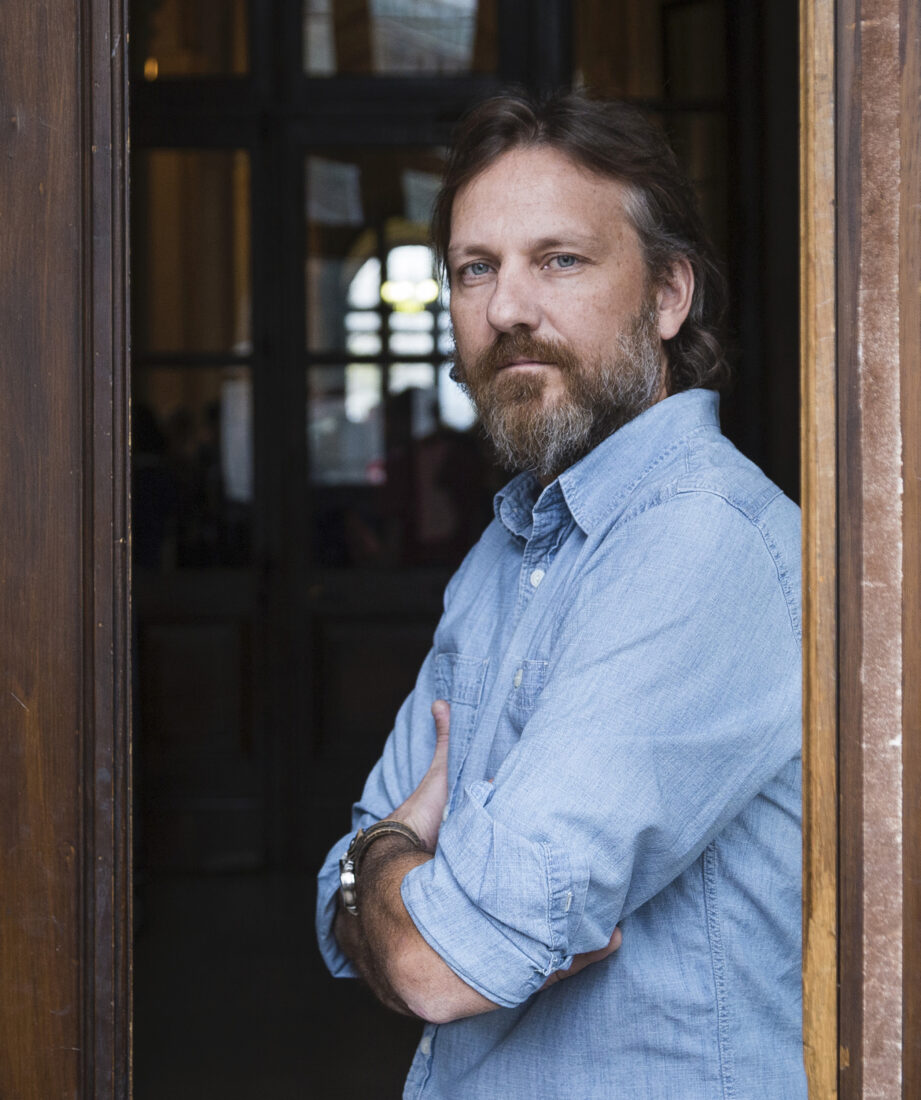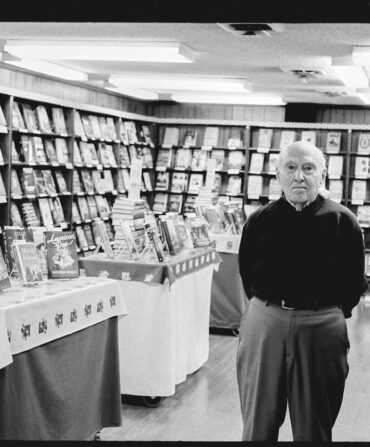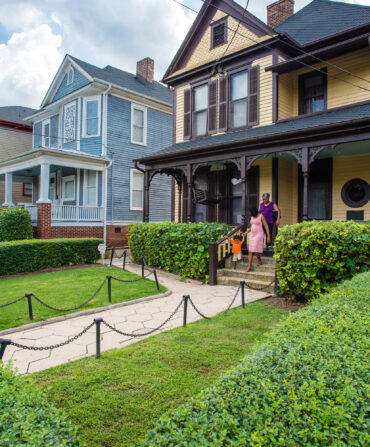Michael Farris Smith is having the kind of year many writers dream about. The Oxford, Mississippi, author, known for his eerie thrillers and frequent comparisons to Cormac McCarthy, released his latest and much lauded novel Salvage This World in April. As if that weren’t enough, Smith has not one, but two film adaptations set for release—both featuring screenplays he wrote. The movies, Desperation Road and Rumble Through the Dark (adapted from his book The Fighter), are stacked with familiar Hollywood names. The former, a noir thriller about an ex-con, stars Garrett Hedlund and Mel Gibson and comes to theaters October 6. Rumble Through the Dark, a suspense story following a bare-knuckle fighter’s attempt to save the home of his dying foster mom, is led by Aaron Eckhart and Bella Thorne and will drop in limited theaters November 3 and on digital and VOD a week later.
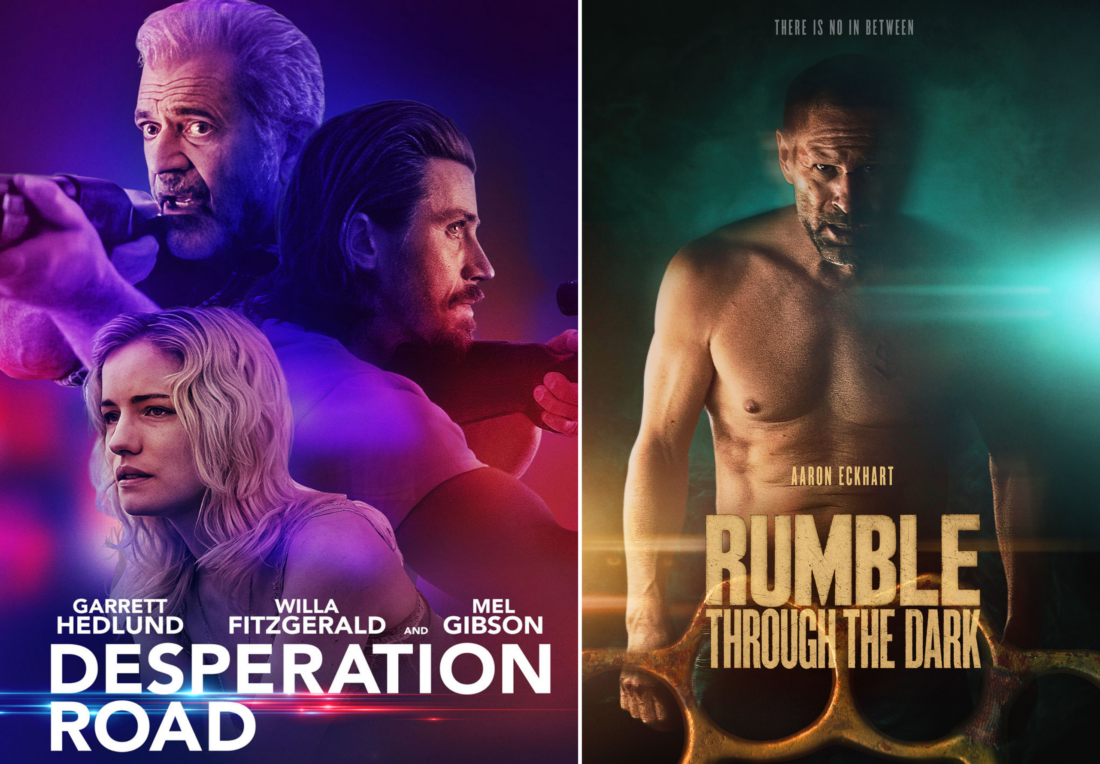
Most authors, especially one not afraid to admit to previous years of rejection letters, might be dancing in the streets. But Smith is keeping his celebrations much more low-key as he considers his recent success, his Biblical influences, and the themes of morality and apocalyptic conditions that continue to inspire him.

It’s a big week—the first of your two movie adaptations just arrived, on Friday. How are you feeling?
I feel a tremendous sense of relief that this is actually the week when one of these things is going to come out. I’m trying to just unwind and kick back, you know, maybe smoke a cigar. Well, maybe several cigars.
Oh yeah?
We have a great cigar store right across the street from my office here in Oxford called Spring Street Cigars. They treat me well, and they have a lot of shade trees. So I’ll probably sit over there a little bit. And then I think I really just want to enjoy it with the people close to me, because they helped me through it all.
You not only wrote Desperation Road, but also its screenplay. What was that like?
I remember being on the phone with agents, and they were like, “We want to attach you to be a script writer. Would you like to do that?” I said, “Yes, I would like to be attached as that.” And the very next question was, “Do you know how to do that?” I said, “Yeah, of course I do.” Then I picked up the phone and I called my manager and I said, “I need you to tell me two books about screenwriting. I need to order them to start trying to figure out how to do this.”

Ha! Obviously you figured it out. And did I see that you also make a cameo in the film?
My scene got cut in Rumble Through the Dark—I’m still a little sore about that. But I did learn a lesson. We shot Rumble first in the fall of 2021. So when it came time for Desperation Road, I said, I’m going to write myself into a spot that I knew couldn’t be cut.
The perks of being a screenwriter. Desperation Road and Rumble Through the Dark, much like your latest novel Salvage This World, all deal with really authentic but extremely flawed characters. For example, in Desperation Road, a former convict is trying to get on the straight and narrow but inexplicably becomes tangled up with a mother and daughter on the run. You have a knack for writing about troubled souls.
One of my major influences when I first started trying to do this was Larry Brown, the Oxford, Mississippi, writer. In reading Larry’s interviews, he said one time that one of the greatest compliments he ever got was about his book Joe. The reviewer had written that he could never figure out if Joe was a good guy or a bad guy. And I thought, that seems perfect to me, because I think that’s very human.
When I’m creating a character, I’m just trying to create them as human. We’re all so flawed and we are all so complex and we all, from one minute to the next, have such a range of emotions. And we’re capable of things we don’t even know we’re capable of, either good or bad.
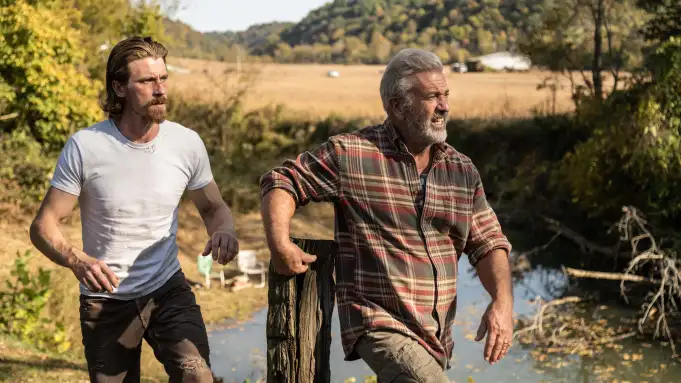
You also put your characters in quite a few rough situations. In Salvage This World, which you’ve said is sort of a prequel to your debut novel Rivers, a young mother and her son find themselves threatened by nonstop hurricanes while being chased by a religious con woman hell bent on hurting the boy’s father. Where do these dark scenes come from?
My father was a Baptist preacher, and the very first stories I was ever exposed to were the Bible stories. I can remember as a kid, I had a Bible that was illustrated. I remember a very specific illustration of Daniel sitting there in the corner, kind of in the shadows in the dark, and a lion is just sitting there watching him. What a powerful and crazy image.
Those stories are filled with failure, and they’re filled with hopes of redemption, and they’re filled with miracles, and they’re filled with light, and they’re filled with darkness, too. I mean, it’s not a happy world. I think it would be foolish to say they didn’t have some impact on me later in life.
Biblical acts of nature is another theme you often return to. You write about the climate so intensely. Have you ever thought about moving from Mississippi?
It’s weird. I do get asked that a lot lately. But Oxford is such a unique place. It’s such a collection of not just writers, but so many talented and interesting people around here. There are bartenders, chefs, painters, musicians. You never know who you’re going to meet around here or what kind of person you’re just going to stumble upon. I think that has really helped us settle, probably, in a way that we might not have otherwise, because thoughts of leaving Mississippi have crossed my mind on many frustrating days, and it still does. But this community is so unique, and I don’t think it’s just unique to the South. I really think it’s unique to the nation.
Your noir lens has often earned you the title of a Southern gothic writer. How do you feel about that?
I’ve realized there’s not much you can do about it, so I embrace it. It may or may not be the right word, but I do take it as a compliment because the writers that I admired who influenced me have been called such things. Cormac McCarthy, William Gay, Flannery, they’ve all been called Southern gothic—Faulkner.
It’s one of those things, you hear it, but I don’t think a lot about it. Like when I sit down to work, I really don’t think about labels. It’s hard enough work to get it to come out as it comes out.


